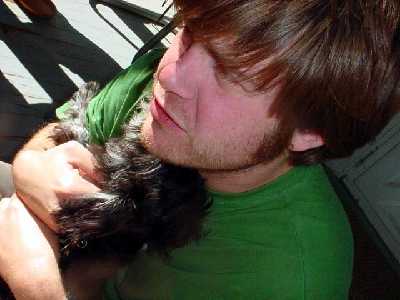All ye know on earth and all ye need to know...
Apply this line of reasoning to all future endeavors...
from Hannah Arendt, “What is Freedom?” from Between Past and Future (New York: Viking, 1961).
p. 152 “Action insofar as it is free is neither under the guidance of the intellect nor under the dictate of the will—although it needs both for the execution of any particular goal—but springs from something altogether different which (following Montesquieu’s famous analysis of forms of government) I shall call a principle. Principles do not operate from within the self as motives do—‘mine own deformity’ or my ‘fair proportion’—but inspire, as it were, from without; and they are much too general to prescribe particular goals, although every particular aim can be judged in the light of its principle once the act has been started. For, unlike the judgment of the intellect which precedes action, and unlike the command of the will which initiates it, the inspiring principle becomes fully manifest only in the performing act itself.”
p. 156 “For this world of ours, because it existed before us and is meant to outlast our lives in it, simply cannot afford to give primary concern to individual lives and the interest connected with them; as such the public realm stands in the sharpest possible contrast to our private domain, where in the protection of family and home, everything serves and must serve the security of the life process. It requires courage even to leave the protective security of our four walls and enter the public realm, not because of particular dangers which may lie in wait for us, but because we have arrived in a realm where the concern for life has lost its validity. Courage liberates men from their worry about life for the freedom of the world. Courage is indispensable because in politics not life the world is at stake.”
p.168 “We find in these parts of the New Testament an extraordinary understanding of freedom, and particularly of the power inherent in human freedom; but the human capacity which corresponds to this power, which, in the words of the Gospel, is capable of removing mountains, is not will but faith. The work of faith, actually its product, is what the gospels called ‘miracles,’ a word with many meanings in the New Testament and difficult to understand. We can neglect the difficulties here and refer only to those passages where miracles are clearly not supernatural events but only what all miracles, those performed by men no less than those performed by a divine agent , always must be, namely, interruptions of some natural series of events, of some automatic process, in whose context they constitute the wholly unexpected.
“No doubt human life, placed on the earth, is surrounded by automatic processes—by the natural process of the earth, which, in turn, are surrounded by cosmic processes, and we ourselves are driven by similar forces insofar as we too are a part of organic nature. Our political life, moreover, despite, its being the realm of action, also takes place in the midst of processes which we call historical and which tend to become as automatic as natural or cosmic processes, although they were started by men. The truth is that automatism is inherent in all processes, no matter what their origin may be—which is why no single act, and no single even can ever, once and for all, deliver and save a man, or a nation, or mankind. It is in the nature of the automatic process to which man is subject, but within and against which he can assert himself through action, that they can only spell ruin for human life.”
p. 169 “Every act, seen from the perspective not of the agent but of the process in whose framework it occurs and whose automatism it interrupts, is a ‘miracle’—that is, something which could not be expected. If it is true that action and beginning are essentially the same, it follows that a capacity for performing miracles must likewise be within the range of human faculties. This sounds stranger than it actually is. It is in the very nature of every new beginning that it breaks into the world as an ‘infinite improbability,’ and yet it is precisely this infinitely improbable which actually constitutes the very texture of everything we call real.”


<< Home